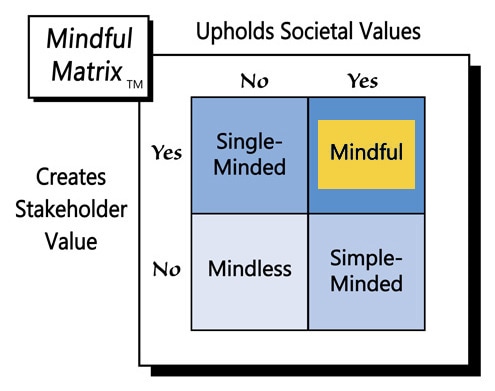Seventeen-year-old Ingvar Kamprad founded IKEA in Sweden in 1943, as a mail-order business. He began selling furniture in 1948, opening his first physical store ten years later. The company, now headquartered in the Netherlands, owns and operates nearly 400 stores in 48 countries and has annual sales of about $39 billion, making it the world’s largest furniture retailer.
With so much experience in furniture over the company’s 74-year history, why would it now want to start focusing on food? Yes, people use some kinds of furniture to store food, and we often sit on furniture while we’re eating, but beyond those things, what’s the connection?
In his classic business book, In Search of Excellence, Tom Peters (1982) concluded that companies should “stick to the knitting,” or focus on doing what they know best and not become too far flung in their operations. Perhaps IKEA execs never read Peters.
However, IKEA already has restaurants in its stores, which are pretty popular. In fact, some people go to IKEA just to eat, which almost sounds like going to a baseball game to get a couple of hotdogs. Actually, it’s quite different.
IKEA’s restaurants are popular for some good reasons. While the menu is understandably small, it offers a nice selection of Swedish-inspired, yet American-friendly, dishes that are apparently very tasty. I’ve never eaten at IKEA, but I’ve often been tempted by the enticing pictures and smells.
Equally important, IKEA prices its restaurant fare very reasonably, just as it does its furniture. For instance, one can buy a plate of Swedish meatballs with lingonberries, seasonal vegetables, mashed potatoes and cream sauce for just $4.99, hot smoked salmon for $6.99, and Swedish waffles for only $1.99. There’s also a kid’s menu with a variety of options for $2.49 each.
“So, the furniture retailer sells some meatballs”—not exactly. According to Fortune, 650 million people in 48 countries ate at IKEA in 2016, generating revenue of $1.8 billion. For comparison sake, that’s about the same as T.G.I. Friday’s total sales U.S. in 2011. In addition, IKEA already has some standalone restaurant experience via pop-up stores it has temporarily run in London, Paris, and Oslo.
The reason IKEA would want to sell food within its furniture stores is fairly obvious. The longer people stay in a store, the more they buy, and a café located inside the store keeps them from leaving when they get hungry. Or, as Gerd Deiwald, head of food operations for IKEA’s U.S.A., says, "We’ve always called the meatballs ‘the best sofa-seller.”
But, why would an expert sofa-seller want to take the risk of peddling food in standalone restaurants? The short answer is “because it can.” More specifically, the company has the wherewithal to do food service well, so it can capitalize on the market opportunity, which will provide another source of revenue and profit.
The move also would help diversify the firm’s product portfolio somewhat, giving it a valuable buffer in the competitive retail furniture market. Globally, much growth in that market is likely to come in China and India—two countries that are often difficult for foreign retailers to penetrate.
Another advantage that IKEA might realize in running standalone restaurants is cross-promotion. It would be shocking if the furniture retailer didn’t use its own tables, chairs, and other dining accessories in its restaurants. So, as you’re eating Swedish meatballs you’re imaging your home with a new IKEA kitchen table set.
But isn’t that a sneaky way of selling furniture—get people to try it out, so they’ll want to buy it? No. That kind of trial is exactly what helps consumers make informed buying decisions. What better way to decide if you’ll like a particular chair than to sit in it for a couple of hours. People aren’t going to buy any furniture they don’t really want, and the restaurants are a good way for customers to get a better idea of what will work well for them.
Should IKEA, then, open a hotel chain so people can try out its bedroom sets? Probably not—at least not until it gets some experience accommodating customers overnight. In the meantime, the company’s significant food service experience and strong brand equity should give it confidence to jump with both feet into the restaurant industry.
It won’t be easy for IKEA. There’s much more culinary competition outside the walls of a big box furniture store. The company also likely will need to make its menu broader and continually update it. Still, if IKEA does open standalone restaurants, they’ll stand a good chance of success, and offer a fine example of “Mindful Marketing.”
Learn more about the Mindful Matrix and Mindful Meter.
Check out Mindful Marketing Ads and Vote your Mind!




 RSS Feed
RSS Feed